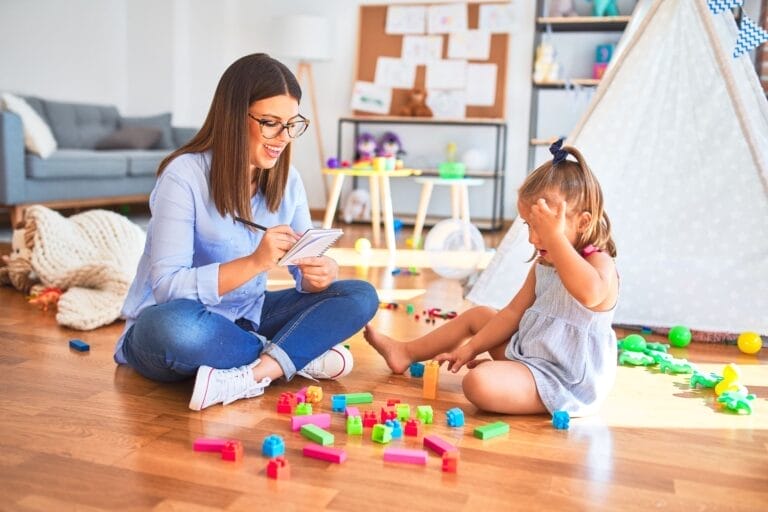A day in the life:
Ever wondered what a typical day looks like for an Applied Behavior Analysis (ABA) Registered Behavior Technician?
As professionals dedicated to supporting individuals with various needs, RBT’s, or Registered Behavior Technicians, play a crucial role in fostering positive behavior change and skill development. From homes to schools and community settings, their days are dynamic and diverse, filled with opportunities to make meaningful impacts. Let’s dive into a detailed exploration of what a day in the life of a RBT entails across these different environments.
Morning Routine:
The day typically begins with careful planning and preparation. RBT’s review client profiles, behavior plans, and session objectives to ensure they are fully equipped for the day ahead. They may gather materials, review data from previous sessions, and mentally prepare strategies tailored to each client’s unique needs.
Home Setting:
In the home environment, RBTs work closely with both the individual receiving services and their family members. Sessions may focus on developing essential life skills such as communication, self-help skills, and behavior management techniques. RBTs collaborate with parents or caregivers to implement strategies consistently and effectively, promoting skill generalization beyond the sessions.
School Setting:
Transitioning to the school setting, RBTs provide support within inclusive classrooms, resource rooms, or specialized settings. They collaborate with educators, support staff, and administrators to ensure that Individualized Education Program (IEP) goals are being addressed effectively. RBTs employ evidence-based strategies to enhance academic performance, social skills, and classroom participation, fostering an inclusive and supportive learning environment for all students.
Community Engagement:
In community settings, RBTs facilitate social skills development, community integration, and behavior management strategies. Whether it’s navigating social interactions at the park, practicing grocery shopping skills, or participating in recreational activities, RBTs provide guidance and support to help individuals generalize skills across various real-world scenarios. Community outings also offer opportunities for RBTs to assess progress, identify areas for growth, and tailor interventions to meet evolving needs.
Data Collection and Analysis:
Throughout the day, RBTs meticulously collect data to track progress, identify patterns, and inform decision-making. They utilize behavior tracking tools, anecdotal notes, and systematic observations to assess behavior change and skill acquisition. Data analysis allows RBTs to make data-driven adjustments to intervention strategies, ensuring that therapy remains individualized and effective.
Collaboration and Communication:
Central to the role of a RBT is collaboration and communication with interdisciplinary teams, including parents, BCBAs, educators, speech therapists, occupational therapists, and other professionals involved in the individual’s care. Regular meetings, progress updates, and collaborative problem-solving sessions ensure that everyone is working towards common goals and promoting consistency across environments.
Conclusion:
A day in the life of a RBT is multifaceted, dynamic, and deeply rewarding. From supporting individuals in their homes to facilitating learning in school settings and promoting community integration, RBTs play a vital role in empowering individuals to reach their full potential. Through evidence-based interventions, collaboration with stakeholders, and a commitment to ongoing learning and growth, RBTs continue to make meaningful contributions to the lives of those they serve, one day at a time.



